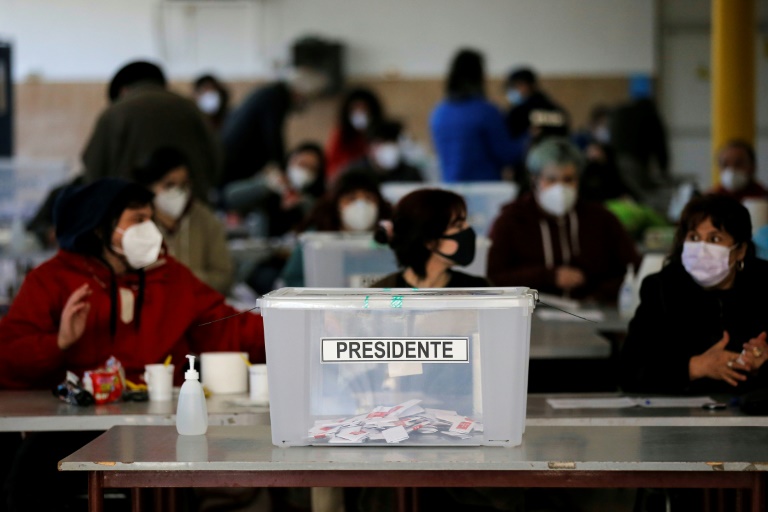The election of former student leader Gabriel Boric and right-wing independent Sebastian Sichel in presidential primaries shows Chileans are opting for gradual change towards a more moderate politics, say analysts.
Sunday’s primaries delivered a chastening blow to the most traditional candidates from the left and right wing coalitions that took part, as well as the opinion polls.
Congressman Boric, who at 35 only just meets the minimum age to stand for the presidency, convincingly defeated Communist Party candidate Daniel Jadue in the left-wing coalition’s primary.
Sichel, who at 43 was the youngest of four right-wing candidates, left in his wake the ultra-conservative Joaquin Lavin, who was seeking a third presidential candidacy, as well as former ministers in the government of conservative President Sebastian Pinera, Mario Desbordes and Ignacio Briones.
“Both (winning) candidates emphasize an optimistic vision of the future,” Juan Pablo Luna, a political sciences academic at the Catholic University of Chile, told AFP.
“Those that lost had a vision that was more … defensive, more advocative of the past than the future.”
Jadue, the mayor of the poor Recoleta neghborhood in Santiago, had been leading the polls for more than a year but picked up less than 40 percent of the vote in the two-horse race.
With 49 percent, Sichel was well clear of second placed Lavin, who in 1999 reached the presidential run-off before losing to socialist Ricardo Lagos, on 31 percent.
“It’s a new cycle, bit by bit it’s the fall of the historical and traditional political parties that marked Chile’s transition to democracy” after the end of the Augusto Pinochet dictatorship (1973-1990), Rodrigo Espinoza, the political sciences coordinator at the Diego Portales Univeristy, told AFP.
– ‘Deep change’ –
Turnout in the primaries was high with more than three million voters — the highest since the primaries system was introduced in 2013.
These elections came just two weeks after the new Constitutional Convention began work on rewriting the dictatorship era Magna Carta.
Boric’s campaign promised a generational change and push towards the center-left.
“Citizens want deep change but they want them to be through democratic means, through dialogue and the building of majorities, and Boric is a better representation of that,” Pamela Figueroa, an academic at the University of Santiago, told AFP.
Boric said that if elected president, he would head a decentralized state that distributes power equally around the country with an environmental and feminist vision and would send neoliberal economic policies “to the grave.”
But he acknowledged his next “challenge” would be to strengthen unity within the Approve Dignity left-wing coalition, while moving it towards the center.
“What we have now isn’t enough to win in November,” said Boric.
The neoliberal model is widely credited with making Chile the richest country in South America, although also castigated for exacerbating inequality.
The election of Sichel, a lawyer and former social development minister in Pinera’s government, represents “an exit from the right-wing’s traditional ideological ring post,” said Espinoza.
“An exit from a conservative right towards a more liberal right.
“Sichel … had close ties to the center and now, from a center-right platform, was very skilful in circumventing the ideological ring post and saying that it wasn’t about a division between left and right but more of the new against the old.”










